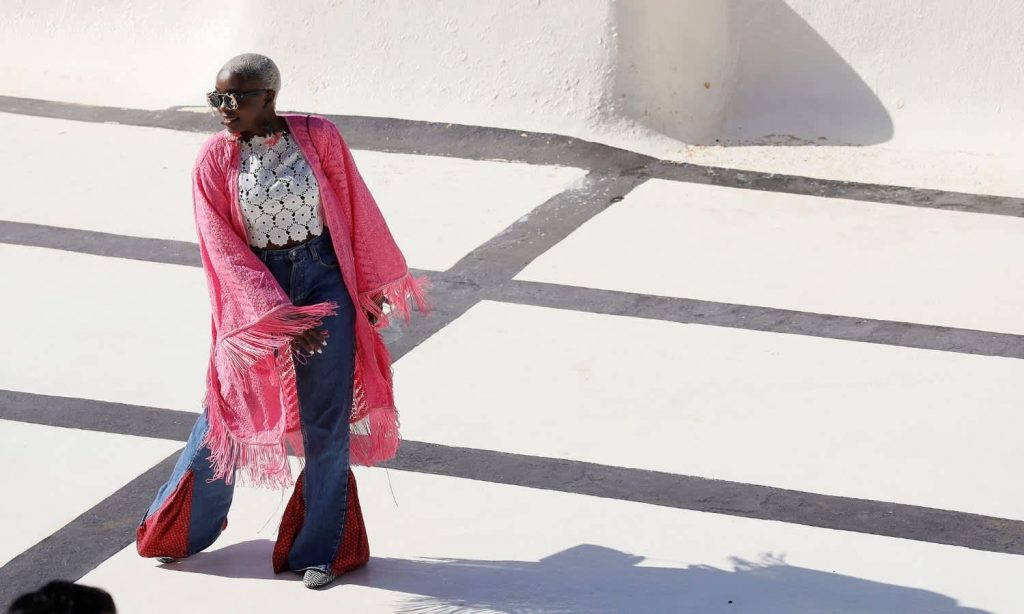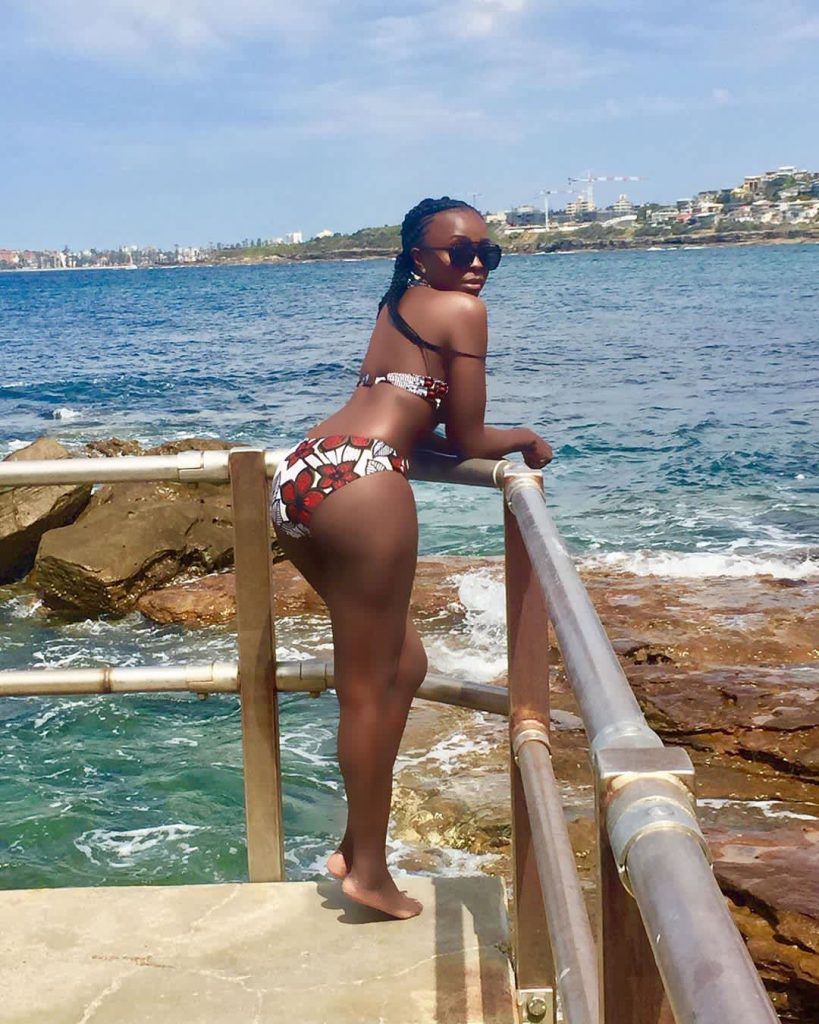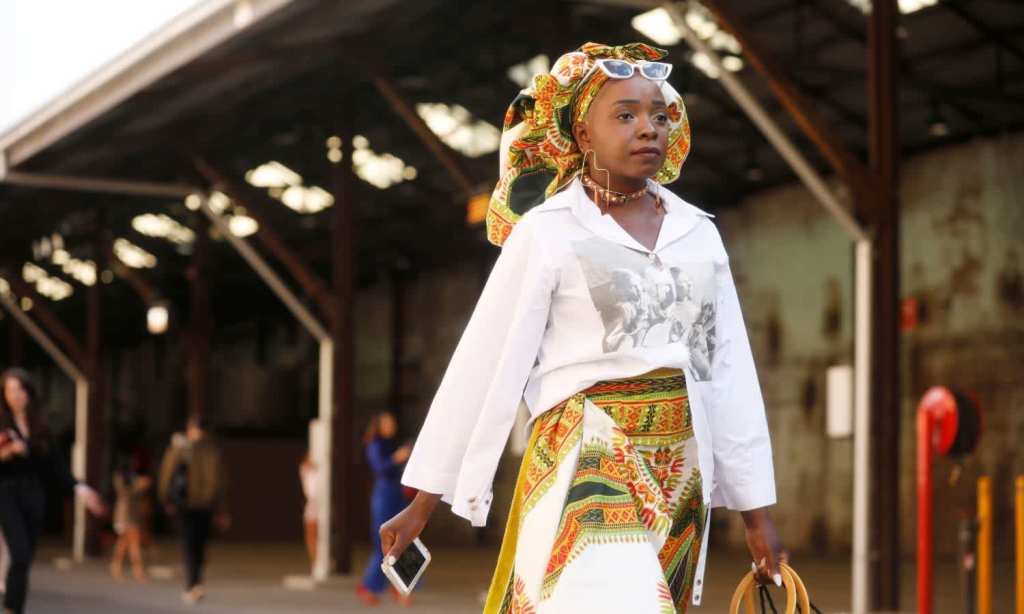One scroll through Suzan Mutesi’s Instagram and you see a fierce, confident woman.
The 34-year-old is not only a model, actress, singer, designer and content maker, but she can also add author to her list of accomplishments.
Mutesi’s new book, a love letter to her younger self called Unapologetically Black: Afro Sisters, and just like the talented woman herself — is a story about being exactly who you were meant to be without apologising for it.
Born in Uganda, Mutesi moved to Australia when she was almost 11-years-old — and while the move promised a bright future, it didn’t come without its obstacles.
“When I was younger, my first encounter was with my drama teacher calling me the “N” word. It was in class. I just didn’t know how to process, I was so young and I just remember going into a corner and crying,” Mutesi told The Latch in an exclusive interview.
“My drama teacher came to me and said, ‘Suzan, are you OK?’ I said, ‘I’m really struggling to understand. I don’t know how you feel comfortable saying all these words and insensitive things about people’s culture and race and you’re not aware of how it can affect me or even how other students will receive it.”
As Suzan worked her way into the world of modelling, she came up against casting agents who told her she was “too black”.
“I can’t tell you how many times I have driven home from castings or from jobs crying. I can’t tell you how many times I’ve wished my colour would change, that I was even mixed,” she said, before adding: “With modelling, it was a struggle until people like Bonds or Nike started embracing blackness and rawness of who we are.”
After landing a Bonds campaign, Mutesi began to see herself for who she truly was. Beautiful with wonderful imperfections.
“I realised the more I accepted myself and believed intensely in who I am and just got vulnerable about my failures, my weaknesses and not apologising, by just owning it, I realised that a lot of people related to my things that I found that were not beautiful about myself.”
Here, she talks to The Latch about her book Unapologetically You: Afro Sisters, why being unapologetically you is such an important message and what happened when she decided to live her truth.

Anita Anabel: Hi Suzan, thank you so much for your time today and congratulations on your new book! What can you tell me about Unapologetically Black: Afro Sisters?
Suzan Mutesi: I wrote the novel to encourage people to gain confidence in their skin, love who they are and just to be confident in who they are and believe.
It’s a book I wrote to my young self and about going back to tell myself not to believe the negative things that were told to me or even the things I’ve believed about myself. I just didn’t like what the society believed or just what other people had said about me.
I had to believe that I’m beautiful and that my dark skin is beautiful and I’m going to love it, and that my hair is kinky and it’s wonderful, and that I don’t have to apologise for it. Just being confident in my own skin, so that’s the whole message behind the book.
AA: The idea of being “unapologetically” you is such an incredible message. Why is it so important to you?
SM: I’ve experienced the struggles of trying to meet people’s expectations. If someone else is expecting something else from you, you can’t just be something else that you’re not.
I realised the more I accepted myself and believed intensely in who I am and just got vulnerable about my failures, my weaknesses and not apologising, by just owning it, I realised that a lot of people related to my things that I found that were not beautiful about myself.
I grew off that because people appreciated the real me and not just this other person that you think people want to see. But actually your vulnerability, your weaknesses, your quirks, your imperfections are what makes you actually beautiful.
AA: Is there something specific that happened that made you stop and realise this?
SM: I’ve been in that place before where I’ve gone to a casting and I was told “You’ve got a big butt” or “You’ve got too many stretch marks and you can’t do bikinis.” Especially in my industry, like being able to work across all different ranges from modelling to acting to music, you get to experience rejection and people’s different opinions and perspectives on all kinds of platforms.
I think being bitten by words for quite a long time and realising that I need to send this message out and encourage other girls and just own that because it can beat up your confidence. It brings out the insecurities in you and can even stop you from pursuing careers.
You think it’s too ambitious to be a model because someone told you your legs are too fat. You think there’s no room for you in the industry but then the plus-size industry is saying, “Okay, we love you, just the way you are.”
People need to be reminded that in an industry like this, there’s also a gap that is needed for someone like you.
AA: And what happened when you decided to live your own truth?
SM: Oh my gosh, I used to be scared to do photoshoots in bikinis and underwear and then one day, a friend was selling a bikini line, and she’s like, “You have to do a shoot” and I said, “No, I’ve been told I’m fat, I don’t have abs”. You know, all those things you’ve been told in castings and I truly believed it. It really broke me down. I didn’t realise how much I believed it and how much it affected my confidence.
So, I went to the shoot and these guys were amazing and it actually felt really good being in underwear and then Bonds started opening up doors for me and sent me underwear saying, “Suzan, we love who you are. We love that you embrace your body and your imperfections are what we love.” Then I started doing shoots for Bonds and they just loved the fact that I was different. Then I saw that I am enough because I’ve got the curves, I can’t run away from the genetics of being a Black African — the booty comes with it, you know? (Laughs) I love that I have, you know, a little bit of a dimple here and it’s beautiful. And then I just embraced my skin and I didn’t have to apologise.
So if I come to a shoot, I use all my skills. My dancing skills, my fun skills, and the photographer has so many photos they don’t even know what to post.
https://www.instagram.com/p/CB6lyuuB4f2/
AA: You were born in Uganda and then moved to Australia. How do you honour your heritage?
SM: I honour my heritage in how I carry myself as a Black woman in my skin and how I sometimes dress up mixing cultures together.
I still speak my mother tongue and I love African food. I love sharing my culture on Instagram and also embrace talking about it. I always say I am African but of course, Australia is home.
I think being able to embrace it in that way and talk about it and invite people into your world is important.
AA: The Black Lives Matter movement has really been placed in the forefront this year and I know you are a really strong advocate for it as well. Do you face racism in Australia? How does that manifest for you?
SM: When I was younger, my first encounter was with my drama teacher calling me the “N” word. It was in class. I just didn’t know how to process, I was so young and I just remember going into a corner and crying. My drama teacher came to me and said, “Suzan, are you OK?” I said, “I’m really struggling to understand. I don’t know how you feel comfortable saying all these words and insensitive things about people’s culture and race and you’re not aware of how it can affect me or even how other students will receive it. Because if you say it like that, other students are going to use that language and I will be teased.”
He understood and apologised. But I’ve faced racism even going to shoots and castings. You’re either “too black” or they’re looking for something who is “mixed” with a bit of black and white, so they will not consider a black person, so sometimes your shade is not right enough to qualify for opportunities.
Even being an actress. I struggle to find roles on TV. I would love to be on Home and Away. Oh my gosh, like those are my dreams coming to Australia! For me, it was, “Wow! I’ve arrived”. These are the dreams I’ve had since I was a child when my mum said we were getting a better life in Australia. So to me, this is it. This is Hollywood, you know?
With modelling, it was a struggle until people like Bonds or Nike started embracing blackness and rawness of who we are.
I have experienced racism. It’s very subtle. I think in Australia it’s not obvious like in the States where they’ll tell you to your face. It’s very subtle.
AA: What was it like being told that you were “too black”?
Oh my gosh, honestly, I can’t tell you how many times I have driven home from castings or from jobs crying. I can’t tell you how many times I’ve wished my colour would change, that I was even mixed. You know, maybe they’ll see a little bit of the other side of me.
If you’re Sudanese, and just the obvious blackness, sometimes that opens up opportunities for you because you’re so rare and you’re so black and tall. So you stand out. But when you’re in between, and your shade is not the shade they’re looking for, it can sometimes get confusing because you’re like, “Well, where do I fit in this whole thing?”
It’s about you being able to say, “I’m not what they’re looking for” and just hoping and believing that these opportunities will come.

AA: You have over 225k Instagram followers and counting. Why is it important to be able to spread the right message on your social media?
SM: I feel like my social media is a place where I go to make them believe in themselves and advocate for the right things. I think it’s a platform where I feel like there are so many voices that have been silenced and if I can use my voice in so many ways to relate, to inspire, to advocate and to give people in encouragement, then I want my platform to do that.
When I saw that my social media was growing because my audience believes in that, I thought, “Perfect. Then we are going to do this together as a team.”
AA: You are so inspiring and I believe a very positive role model, but what type of role model do you want to be for the younger generations?
SM: I want to be a role model that reminds them to be unapologetically yourself. If you’re creative than sing. If you’re a dancer, then dance. I want to tell them that they are beautiful and that they are enough. You’re not limited by your skin colour or where you are from.
This nation is a blessing. Coming here in Australia was a blessing in my life and I will take every opportunity that’s placed in my hands and I will use it.
I think the message is about being unapologetically you. You are amazing, uniquely, wonderful and there is no one like you. And the best thing for you is you. That’s what we want to see.
You can buy Suzan Mutesi’s book Unapologetically Black: Afros Sisters here or at any bookstore online.







